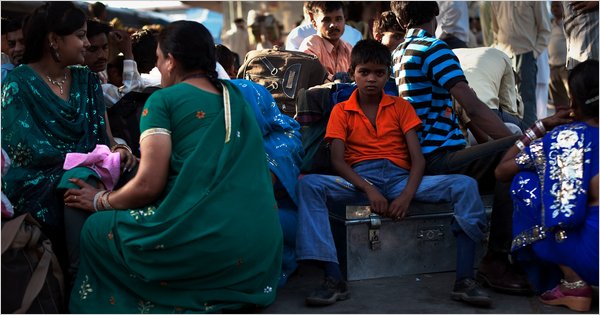12:06AM
The long pole in the tent of markets' emergence
 Saturday, June 26, 2010 at 12:06AM
Saturday, June 26, 2010 at 12:06AM  India: "When's that train coming?"
India: "When's that train coming?"
NYT story with the usual gripe for emerging markets: external infrastructure better than internal.
S. K. Sahai’s firm ships containers 2,400 nautical miles from Singapore to a port here in four or five days. But it typically takes more than two weeks to make the next leg of the journey, 870 miles by rail to New Delhi.
For most of that time the containers idle at the Jawaharlal Nehru Port near Mumbai because railway terminals, trains and tracks are severely backlogged all along the route. Counting storage and rail freight fees, Mr. Sahai estimates the cost of moving goods from Mumbai to Delhi at up to $840 per container — or about three times as much as getting the containers to India from Singapore.The problem is presented as a symptom of democracy, in contrast with China's authoritarian ability to build networks on demand.
Old story: dictators good at building networks, but democracies/markets better at running them.










Reader Comments (1)
"the usual gripe for emerging markets: external infrastructure better than internal."
Nothing new. England's ports during its early colonial era had many more international links than even relatively close internal domestic links. The choice of people was to sell land and move to coast jobs, or try to scratch out a living on their own little land. Before that Renaissance Mediterranean traders were replaced by global sea explorer merchants who also took the wealthy folks $ abroad. The anger reaction is reflected in the Merchant of Venice.
In 1776 Adam Smith reoriented from talking ethics to pragmatic economics. He showed how the risk factor and 'shipping' time cost of trade offset its value. In 1776 our Revolution also demonstrated the risk and cost of colonial economics.
Adam Smith books should be in India's libraries.